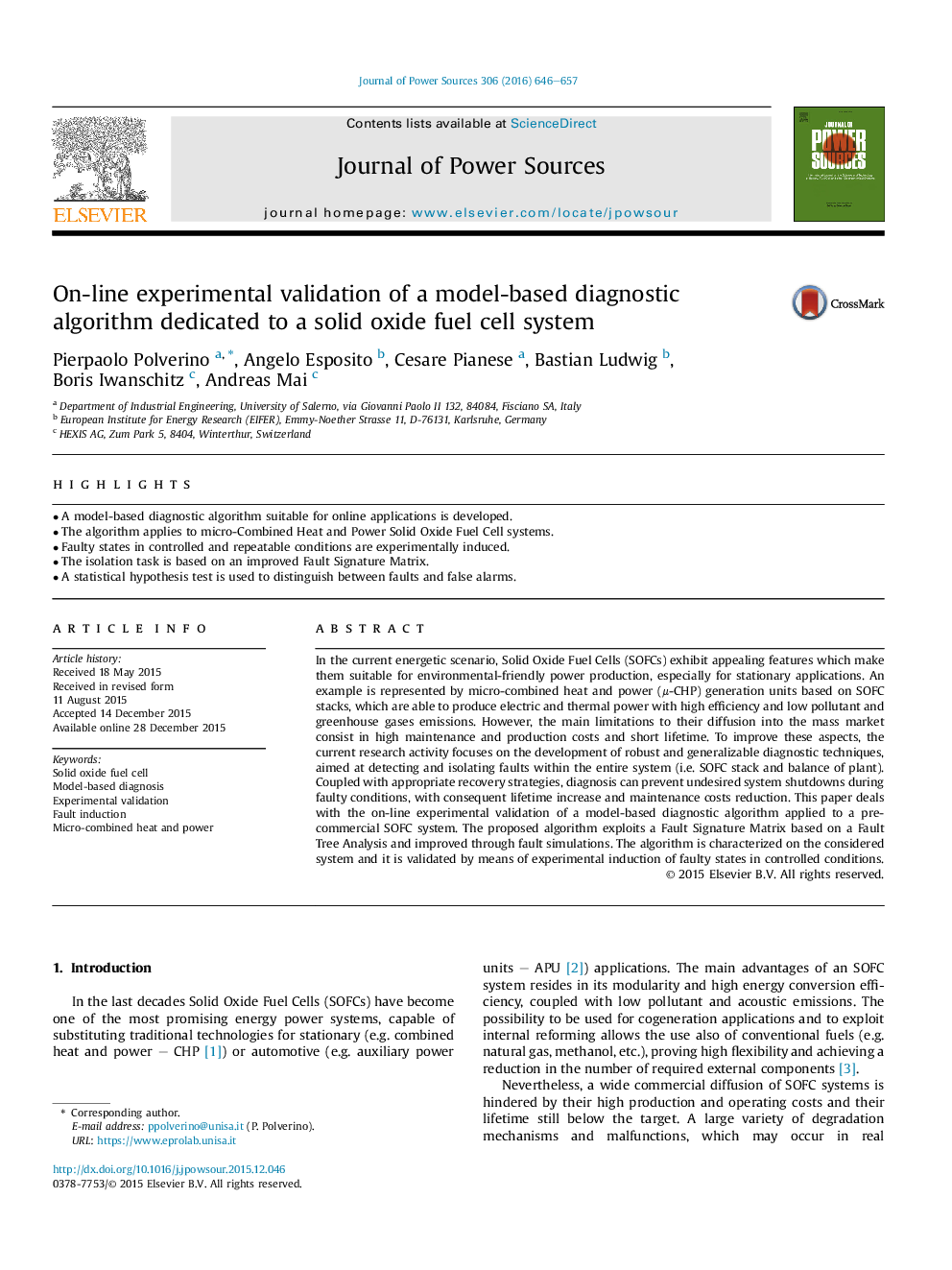| Article ID | Journal | Published Year | Pages | File Type |
|---|---|---|---|---|
| 1292346 | Journal of Power Sources | 2016 | 12 Pages |
•A model-based diagnostic algorithm suitable for online applications is developed.•The algorithm applies to micro-Combined Heat and Power Solid Oxide Fuel Cell systems.•Faulty states in controlled and repeatable conditions are experimentally induced.•The isolation task is based on an improved Fault Signature Matrix.•A statistical hypothesis test is used to distinguish between faults and false alarms.
In the current energetic scenario, Solid Oxide Fuel Cells (SOFCs) exhibit appealing features which make them suitable for environmental-friendly power production, especially for stationary applications. An example is represented by micro-combined heat and power (μ-CHP) generation units based on SOFC stacks, which are able to produce electric and thermal power with high efficiency and low pollutant and greenhouse gases emissions. However, the main limitations to their diffusion into the mass market consist in high maintenance and production costs and short lifetime. To improve these aspects, the current research activity focuses on the development of robust and generalizable diagnostic techniques, aimed at detecting and isolating faults within the entire system (i.e. SOFC stack and balance of plant). Coupled with appropriate recovery strategies, diagnosis can prevent undesired system shutdowns during faulty conditions, with consequent lifetime increase and maintenance costs reduction. This paper deals with the on-line experimental validation of a model-based diagnostic algorithm applied to a pre-commercial SOFC system. The proposed algorithm exploits a Fault Signature Matrix based on a Fault Tree Analysis and improved through fault simulations. The algorithm is characterized on the considered system and it is validated by means of experimental induction of faulty states in controlled conditions.
